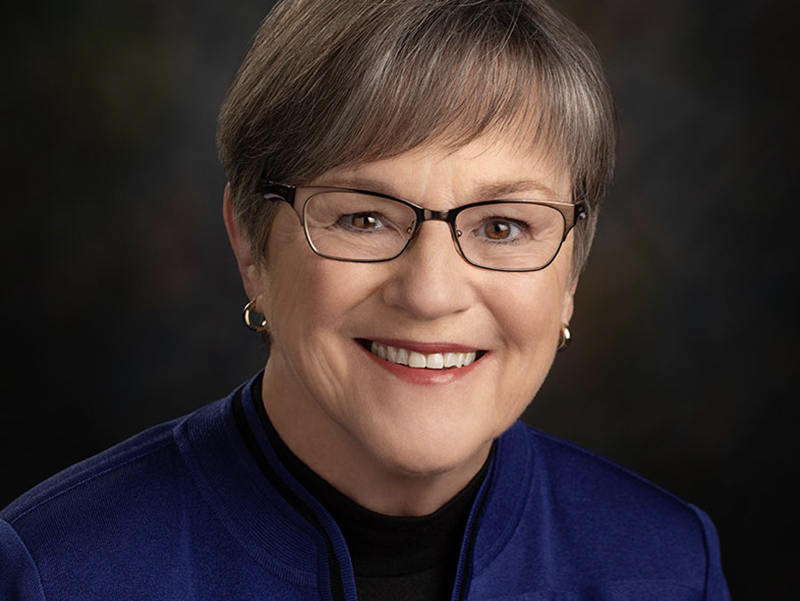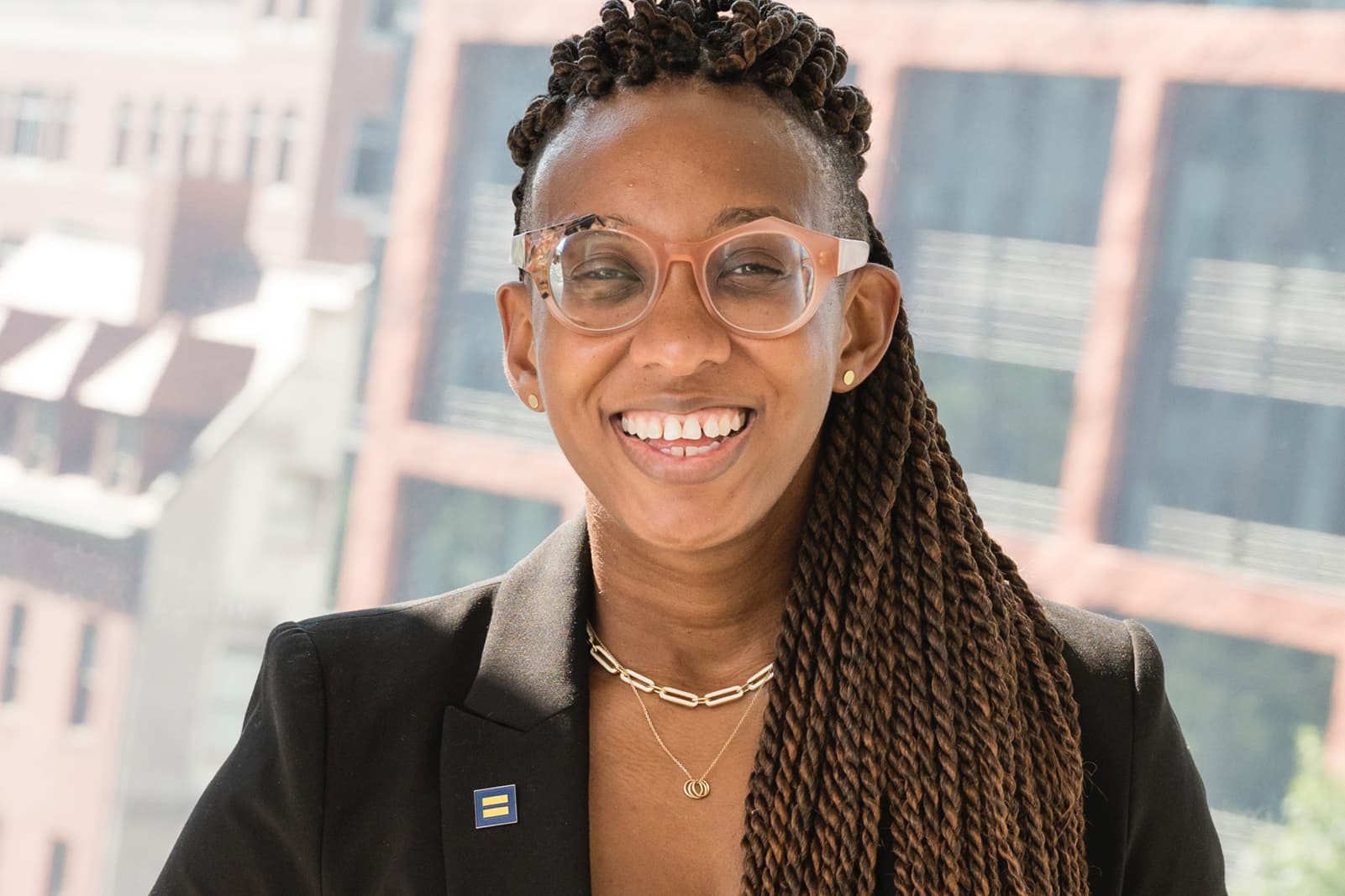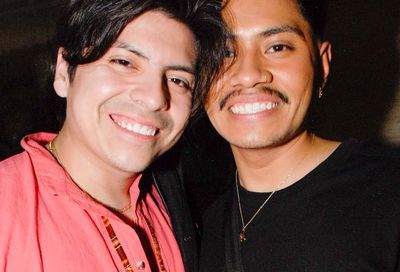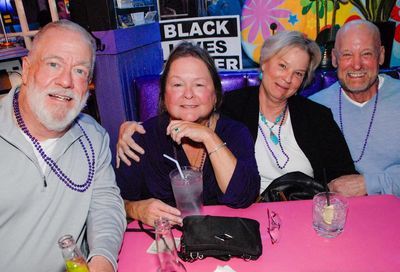Civil rights groups rally after Trump’s judicial nominees won’t say whether segregation is unlawful
Civil rights groups rally in protest of Wendy Vitter and other Trump nominees who are silent about landmark desegregation case

On Thursday, civil and LGBTQ rights organizations held a rally outside the U.S. Capitol to highlight what they see as a disturbing trend of federal judicial nominees who refuse to acknowledge the 1954 Brown v. Board of Education Supreme Court decision as settled law, including several who were recently confirmed by the U.S. Senate.
The rally, taking place on the 65th anniversary of the landmark Supreme Court decision, denounced the views of several of President Trump’s judicial nominees, including Wendy Vitter, who was confirmed to a seat on the U.S. District Court for the Eastern District of Louisiana by a 52-45 vote just hours after the rally ended.
Sen. Susan Collins (R-Maine) was the only Republican to vote against Vitter’s nomination.
The civil rights organizations specifically called out Vitter because her nomination was up for a vote on Thursday, but she is only one of at least 30 federal judicial nominees in recent months who have refused to answer questions from Democrats on the Senate Judiciary Committee about whether Brown v. Board of Education, which ruled that segregation was unlawful, was correctly decided.
Fifth Circuit Judge Andy Oldham, who also declined to directly answer questions on whether Brown was correctly decided and whether it is recognized as legal precedent, was confirmed last July. D.C. Circuit Court Judge Neomi Rao, following a similar strategy, was confirmed in March.
Michael Park, a Trump nominee, was confirmed on May 9 to the 2nd U.S. Circuit Court of Appeals. Michael Truncale, a Trump nominee on the U.S. District Court for the Eastern District of Texas was confirmed on Tuesday, and Kenneth Lee, a Trump nominee to the 9th U.S. Circuit Court of Appeals, was confirmed Wednesday evening.
While he is not a judicial nominee, it should be noted Jeffrey Rosen, who was confirmed on Thursday as Deputy Attorney General by a vote of 52-45, with all Republicans voting in favor, also previously declined to answer the question of whether the Brown decision was legal precedent.
That leaves the following 24 judicial nominees whose nominations are pending who refuse to acknowledge Brown as settled law:
- Daniel Collins, nominate to the 9th U.S. Circuit Court of Appeals;
- Miller Baker, nominated to the U.S. Court of International Trade;
- Timothy Reif, nominated to the U.S. Court of International Trade;
- Richard Hertling, nominated to the U.S. Court of Federal Claims;
- Matthew Solomson, nominated to the U.S. Court of Federal Claims;
- Michael Liburdi, nominated to the U.S. District Court for the District of Arizona;
- Thomas Barber, nominated to the U.S. District Court for the Middle District of Florida;
- Wendy Berger, nominated to the U.S. District Court for the Middle District of Florida;
- Steven Grimberg, nominated to the U.S. District Court for the Northern District of Georgia;
- Damon Leichty, nominated to the U.S. District Court for the Northern District of Indiana;
- Greg Guidry, nominated to the U.S. District Court for the Eastern District of Louisiana;
- James Cain, nominated to the U.S. District Court for the Western District of Louisiana;
- Brian Buescher, nominated to the U.S. District Court for the District of Nebraska;
- Peter Welte, nominated to the U.S. District Court for the District of North Dakota;
- Karin Immergut, nominated to the U.S. District Court for the District of Oregon;
- Nicholas Ranjan, nominated to the U.S. District Court for the Western District of Pennsylvania;
- Clifton Corker, nominated to the U.S. District Court for the Eastern District of Tennessee;
- Sean Jordan, nominated to the U.S. District Court for the Eastern District of Texas;
- Ada Brown, nominated to the U.S. District Court for the Northern District of Texas;
- James Hendrix, nominated to the U.S. District Court for the Northern District of Texas;
- Mark Pittman, nominated to the U.S. District Court for the Northern District of Texas;
- Brantley Starr, nominated to the U.S. District Court for the Northern District of Texas;
- Jeffrey Brown, nominated to the U.S. District Court for the Southern District of Texas; and
- David Novak, nominated to the U.S. District Court for the Eastern District of Virginia.
Sherrilyn Ifill, the president and director-counsel of the NAACP Legal Defense and Educational Fund, who spoke at Thursday’s rally, previously penned an op-ed for The Washington Post outlining civil rights advocates’ objections to the nominees in question.
“For nearly 65 years, the legal consensus around Brown was unequivocal. With its transformational opinion eviscerating segregation and codifying the modern contours of equal justice, Brown remained above partisanship, ideology and everything else,” Ifill wrote, noting that conservatives like Supreme Court Justices John Roberts, Samuel Alito, and Brett Kavanaugh have all affirmed Brown as settled law, with Kavanaugh even going so far as to call it “single greatest moment in Supreme Court history.”
But, Ifill noted, Vitter broke that mold during her confirmation hearings in April 2018, when she refused to answer a question about Brown, arguing that she should not comment on which Supreme Court decisions she agrees with or believes were correctly decided. Oldham, Rao, Park, and even Rosen followed Vitter’s lead, starting a chain reaction of refusals to address Brown among other Trump judicial nominees.
“The reluctance to speak about Brown cannot be explained by the rationale frequently offered by nominees who refuse to answer questions about Citizens United, for instance, namely that the case is one that might come back before the court,” wrote Ifill. “…So, what’s the real reason these executive and judicial nominees are suddenly demurring on Brown? The ugly truth is that declining to offer approval of Brown signals a willingness to question the project of democracy that Brown created — one in which African Americans and other marginalized groups compelled the federal courts to honor the spirit of equal justice embodied in the words of the 14th Amendment.”
LGBTQ groups were particularly critical of Vitter’s nomination, with the Human Rights Campaign calling her views “outside the mainstream” and a “direct threat to the health and rights of women, LGBTQ people and communities of color.”
“With serious questions about [Vitter’s] commitment to core civil rights law at the heart of her confirmation, her refusal to affirm the landmark Supreme Court ruling that struck down school segregation is a major red flag,” David Stacy, HRC’s government affairs director, said in a statement.
The LGBTQ group Southerners on New Ground called Vitter’s confirmation “troubling,” while also maintaining similar objections to other Trump judicial nominees who follow her example.
“As LGBTQ Southerners working for over 26 years across race, class, gender and sexuality, we believe in freely living, loving and building our lives in communities in a way that allows us be in our dignity,” Roberto Tijerina, co-director of SONG, said in a statement. “Vitter’s lack of acknowledgement of the Brown v. Board of Education is alarming in that it signals this administration’s continued bias-motivated attacks on our lives and families.
“This country’s history of valuing some lives over others reaches back to its inception and its failure to live up to its founding principles. Brown v. Board of Education was a milestone in the long, incomplete road to equality, and we are right to be wary of anyone who refuses to acknowledge the basic rightness of that decision,” Tijerina said in a statement. “Judicial neutrality is a specious justification for doing so. From resistance to supporting a non-discrimination law to attacks on the reproductive rights of many, this decision falls in line with the racist, sexist, xenophobic agenda of this administration.”

Lisa Cylar Barrett, the policy director for the NAACP Legal Defense and Educational Fund, says it can be easy to underestimate the importance of judicial nomination — particularly during a time when activism is at an all-time high and other issues have stolen much of the spotlight or oxygen. But judge’s views on legal precedent can shape rulings that will shape people’s lives for years to come.
“Folks outside of D.C. need to understand what’s going on with judges here, and why it’s important,” Cylar Barrett, says. “Judges aren’t necessarily the ‘sexy’ thing that will attract folks’ attention, but it is something that will impact people’s lives for a very long time. These are lifetime positions. And even after we have a switch in administrations, these judges will still be in place.”
Specifically regarding Brown, Cylar Barrett notes that no one has provided an ideological reason for why recent nominees are breaking with a bipartisan tradition and refusing to acknowledge the decision’s validity.
“Heretofore, Brown has been sacrosanct. It’s been understood to be part of the legal canon of this country,” she says. “In many ways, it’s been viewed to be on par with Marbury v. Madison, in terms of the vitality of the American legal system, and what it means for the larger system. So yes, Brown is about segregated schools, but it birthed so much more than that in that it is the core canon of equality in this country.

“We feel in many ways this is a dog-whistle, to suggest that Brown, and all that flows from Brown, in terms of the underlying principles around equality and justice, could be up for renegotiation,” Cylar Barrett adds, “which we think is totally unacceptable.”
Asked if she believes that Trump’s judicial nominees genuinely believe Brown was wrongly decided, or if they’re trying to appeal to certain elements within society, Cylar Barret responds: “I don’t think it matters. Because if you’re willing to play that kind of politics, that’s a problem. You can’t sit on a court and be an impartial jurist, and have folks coming before you who expect they’re going to be heard and treated fairly, if you can’t state on the record that a case as important as Brown was rightly decided.”
She notes that many of the president’s nominees have aligned with names on lists supplied by conservative organizations like the Federalist Society and the Heritage Foundation, noting: “The concern there is you have this external organization that has a particular viewpoint or a particular agenda that is basically reordering the federal court system of this country.”
Vanita Gupta, the president and CEO of The Leadership Conference on Civil and Human Rights, who previously ran the Justice Department’s Office of Civil Rights under the Obama administration, issued a statement calling Vitter and the other Trump nominee’s refusal to go on record on Brown “disqualifying.”
“Brown v. Board of Education was not just about ending legal segregation in schools. It overturned a legal racial caste system that was used to oppress and dehumanize African-Americans,” Gupta said. “Federal judges wield incredible power that can be exercised to curtail opportunities, especially for marginalized communities. Judicial nominees who are unwilling to clearly affirm that Brown was correctly decided are sending a dangerous signal to all Americans that it could someday be overturned and that our nation could return to the disgraceful days of racial segregation. … It should be disqualifying if nominees refuse to endorse this essential principle of racial equality.”
Support Metro Weekly’s Journalism
These are challenging times for news organizations. And yet it’s crucial we stay active and provide vital resources and information to both our local readers and the world. So won’t you please take a moment and consider supporting Metro Weekly with a membership? For as little as $5 a month, you can help ensure Metro Weekly magazine and MetroWeekly.com remain free, viable resources as we provide the best, most diverse, culturally-resonant LGBTQ coverage in both the D.C. region and around the world. Memberships come with exclusive perks and discounts, your own personal digital delivery of each week’s magazine (and an archive), access to our Member's Lounge when it launches this fall, and exclusive members-only items like Metro Weekly Membership Mugs and Tote Bags! Check out all our membership levels here and please join us today!


























